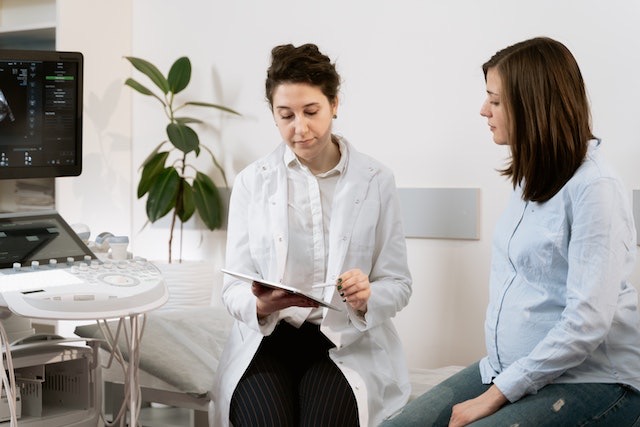Pregnancy is a time of excitement and anticipation for most women. However, it is also a time when women are more susceptible to infections due to a weakened immune system. Some infections can be harmful to both the mother and the baby, while others may only affect the mother. In this blog post, we will discuss the 10 Most Common Infections During Pregnancy and how to prevent them. Ready? Let’s begin.
10 Most Common Infections During Pregnancy and How to Prevent Them.
1. Urinary tract infection (UTI).
UTI is one of the most common infections during pregnancy. It occurs when bacteria enter the urinary tract and cause an infection. Symptoms include frequent urination, painful urination, and lower abdominal pain. To prevent UTIs during pregnancy, it is important to drink plenty of water, wipe from front to back after using the toilet, and urinate frequently.
2. Group B Streptococcus (GBS).
GBS is a bacterial infection that can be passed from mother to baby during delivery. Most women who carry GBS do not experience any symptoms, but it can be dangerous for the baby if left untreated. To prevent GBS during pregnancy, women should be screened for the infection at 36-37 weeks and treated with antibiotics during labor if necessary.
3. Influenza.
Influenza is a viral infection that can be dangerous for pregnant women, especially in the later stages of pregnancy. Symptoms include fever, cough, sore throat, and body aches. To prevent influenza during pregnancy, women should receive the flu vaccine before or during flu season.
4. Chickenpox.
Chickenpox is a viral infection that can be dangerous for pregnant women and their babies. It can cause birth defects or even stillbirth. If a woman has never had chickenpox, she should avoid contact with anyone who has the infection during pregnancy. If she does contract chickenpox, she should contact her healthcare provider immediately.
You can share this article by clicking the image below.
5. Cytomegalovirus (CMV).
CMV is a common viral infection that can cause birth defects if contracted during pregnancy. Symptoms include fever, fatigue, and swollen glands. To prevent CMV during pregnancy, women should practice good hygiene, such as washing hands frequently and avoiding contact with saliva or urine from young children.
6. Hepatitis B.
Hepatitis B is a viral infection that can be passed from mother to baby during delivery. It can cause liver damage and even liver cancer. To prevent hepatitis B during pregnancy, women should be screened for the infection and vaccinated if necessary.
7. Listeriosis.
Listeriosis is a bacterial infection that can be contracted through contaminated food. Symptoms include fever, chills, and muscle aches. Pregnant women are at a higher risk for listeriosis, which can cause miscarriage or stillbirth. To prevent listeriosis during pregnancy, women should avoid certain foods, such as deli meats, hot dogs, and unpasteurized dairy products.
8. Toxoplasmosis.
Toxoplasmosis is a parasitic infection that can be contracted through contact with infected cat feces or undercooked meat. It can cause birth defects or miscarriage. To prevent toxoplasmosis during pregnancy, women should avoid contact with cat feces and cook meat thoroughly.
9. Sexually transmitted infections (STIs).
STIs, such as chlamydia, gonorrhea, and syphilis, can be harmful to both the mother and the baby during pregnancy. They can cause preterm labor, stillbirth, and other complications. To prevent STIs during pregnancy, women should practice safe sex and get tested regularly.
10. Yeast infection.
Yeast infections are common during pregnancy due to hormonal changes. Symptoms include itching, burning, and discharge. To prevent yeast infections during pregnancy, women should wear loose-fitting clothing, avoid douching, and maintain good hygiene. If a woman suspects that she has a yeast infection during pregnancy, she should consult her healthcare provider for treatment options. By taking the necessary steps to prevent and treat yeast infections, pregnant women can reduce their risk of complications and have a healthier pregnancy.
Related Posts you might want to read!
First trimester of pregnancy. The checklist.
How to Conceive a Girl Naturally.
25 Most Common Pregnancy Questions Answered.
Tips to Prepare for a Healthy Pregnancy.
How to Get Rid of Round Ligament Pain During Pregnancy.
Final Thoughts about 10 Most Common Infections During Pregnancy and How to Prevent Them.
In conclusion, infections during pregnancy can be dangerous for both the mother and the baby. It is important for pregnant women to take preventative measures to reduce the risk of contracting these infections. Simple steps such as good hygiene, regular screenings, and vaccination can go a long way in preventing these infections. If a woman suspects that she has contracted an infection during pregnancy, she should contact her healthcare provider immediately. By being aware of the risks and taking appropriate measures, women can ensure a healthy pregnancy for themselves and their babies.
I hope this article is helpful, share your thoughts bellow.
Zadi, xo
Disclaimer: The medical information on this post is for educational and entertainment use only. Under no circumstances, this information is to replace your doctor’s advice or to treat any disease. For proper care, always visit your doctor.










